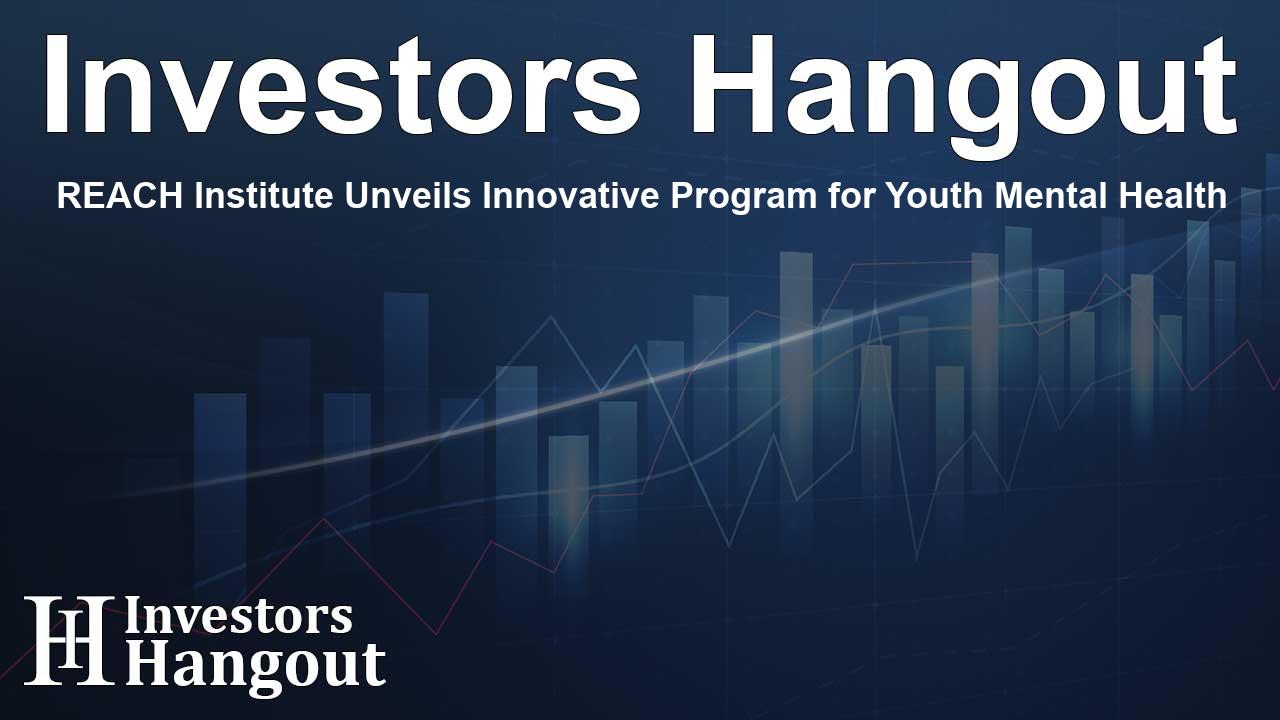REACH Institute Unveils Innovative Program for Youth Mental Health

The Need for Enhanced Pediatric Mental Health Care
The increasing rates of youth depression present a growing challenge for healthcare providers. Recent statistics suggest that approximately 4.1 million adolescents, aged 12 to 17, are grappling with depression, yet only about 41% of them receive necessary treatment. This alarming trend emphasizes the crucial role of primary care providers (PCPs) in addressing this mental health crisis.
Introducing The REACH Institute's New Course
In response to this urgent need, The REACH Institute, a nonprofit dedicated to providing effective mental health resources, has launched a new course within its Child/Adolescent Training in Evidence-Based Psychotherapy (CATIE) program, specifically designed for primary care providers. This forthcoming course, titled 'CBT for Depression in Pediatric Primary Care,' will be conducted virtually.
Overview of the Training
This one-day, interactive workshop is crafted to equip pediatricians, family practitioners, nurses, and physician assistants with vital skills for managing youth depression. It focuses on hands-on training in Cognitive Behavioral Therapy (CBT) techniques and aims to enhance providers' confidence when addressing mental health issues manifesting in children and teens.
Expert Guidance and Support
Participants will be instructed by qualified professionals, including a mental health expert and a pediatric PCP, ensuring high-quality training. The REACH Institute has consistently achieved remarkable feedback, positioning its training programs among the top 10% in continuing education. This is a testament to the quality of educational experiences they provide.
Importance of CBT in Pediatric Care
Cognitive Behavioral Therapy (CBT) has proven to be effective for treating depression in children and adolescents. However, there is a notable shortage of child specialists proficient in CBT methods. Therefore, the REACH Institute seeks to empower PCPs to utilize CBT principles, helping to alleviate the symptoms of depression among youth while they await further intervention from dedicated mental health resources.
Curriculum Highlights
The curriculum covers essential skills like identifying symptoms of youth depression, conducting screenings for depression and suicidality, and recognizing when to refer patients to mental health specialists. Moreover, the course includes four follow-up sessions, creating an ongoing support system for healthcare providers as they incorporate what they have learned.
Additional Training Opportunities
The CBT for Depression in Pediatric Primary Care course is just one part of an extensive training series offered by The REACH Institute. It complements other crucial training programs such as:
- CBT for Anxiety in Pediatric Primary Care
- Practical Behavior Management in Pediatric Primary Care
- Addressing Trauma in Pediatric Primary Care
Commitment to Community Wellness
The REACH Institute is committed to addressing the significant gap in pediatric mental health services, particularly within underserved communities. Their rigorous training programs aim to equip healthcare providers with the necessary tools to better diagnose and treat mental health conditions commonly encountered in their practices.
Testimonials from Training Alumni
Avis Johnson-Smith, a pediatric nurse practitioner and REACH alumnus, shared how these courses have transformed her practice. She emphasizes the importance of equipping healthcare providers with extensive knowledge and skills, enabling them to positively impact the children and families they serve.
About The REACH Institute
The REACH Institute is a national nonprofit organization focused on ensuring that effective mental health care reaches all children and families. With more than 8,000 primary care providers trained since its inception in 2006, the organization plays a pivotal role in enhancing access to critical pediatric mental health services. Further information about their programs can be found on their official website.
Frequently Asked Questions
What is the new program offered by The REACH Institute?
The new CBT for Depression in Pediatric Primary Care program equips primary care providers with strategies to manage youth depression effectively.
Who should attend the newly launched course?
This course is designed for pediatricians, family physicians, nurse practitioners, and physician assistants involved in pediatric care.
How is the REACH Institute addressing youth depression?
The REACH Institute aims to reduce youth depression cases by training primary care providers in evidence-based methods, such as CBT.
What feedback does the REACH training receive?
Participants have consistently rated REACH training programs among the top tier of continuing education courses for their quality and relevance.
How can healthcare providers get involved in the training?
Healthcare providers can register for upcoming courses through The REACH Institute's official website, where they can find additional resources and information.
About The Author
Contact Kelly Martin privately here. Or send an email with ATTN: Kelly Martin as the subject to contact@investorshangout.com.
About Investors Hangout
Investors Hangout is a leading online stock forum for financial discussion and learning, offering a wide range of free tools and resources. It draws in traders of all levels, who exchange market knowledge, investigate trading tactics, and keep an eye on industry developments in real time. Featuring financial articles, stock message boards, quotes, charts, company profiles, and live news updates. Through cooperative learning and a wealth of informational resources, it helps users from novices creating their first portfolios to experts honing their techniques. Join Investors Hangout today: https://investorshangout.com/
The content of this article is based on factual, publicly available information and does not represent legal, financial, or investment advice. Investors Hangout does not offer financial advice, and the author is not a licensed financial advisor. Consult a qualified advisor before making any financial or investment decisions based on this article. This article should not be considered advice to purchase, sell, or hold any securities or other investments. If any of the material provided here is inaccurate, please contact us for corrections.
